Find Help
More Items From Ergsy search
-
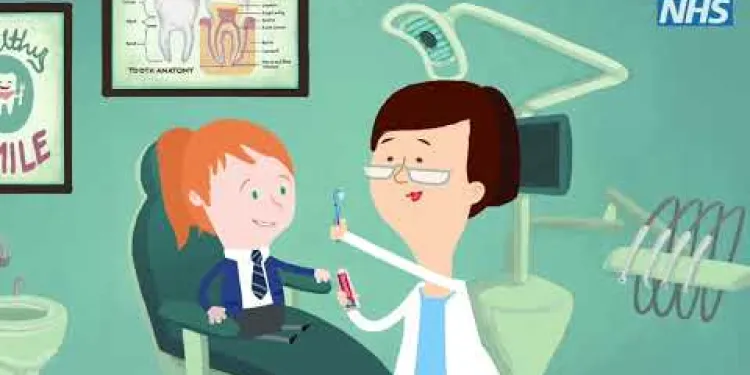
Oral Health Awareness - Tooth Decay
Relevance: 100%
-
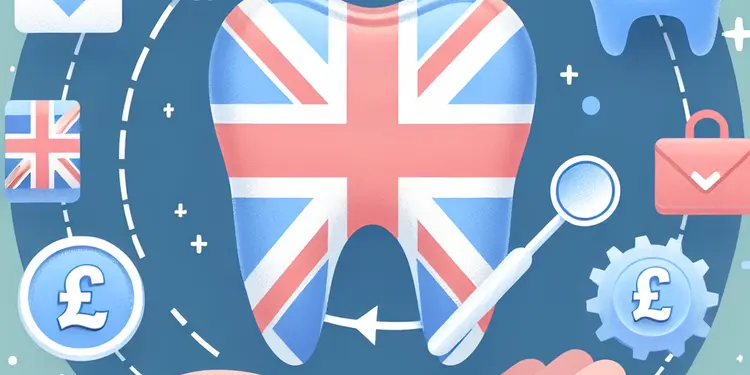
Can tooth decay be reversed?
Relevance: 76%
-
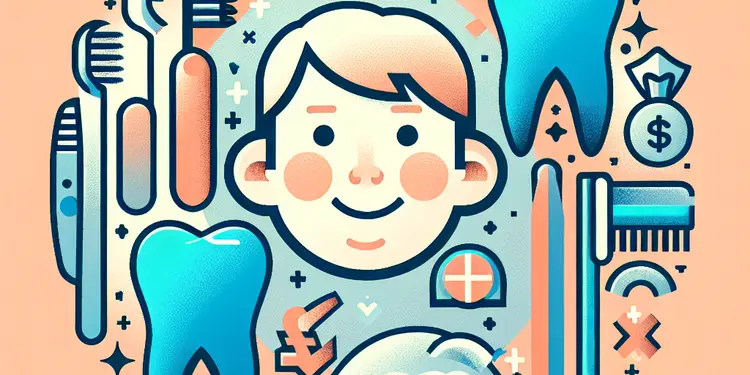
Is tooth decay common in children?
Relevance: 76%
-
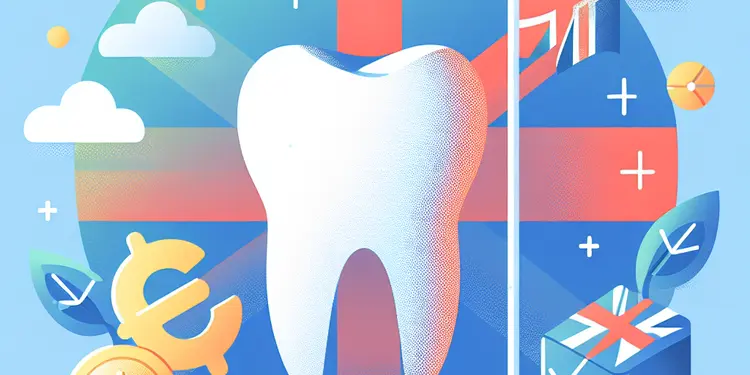
What are the symptoms of tooth decay?
Relevance: 76%
-
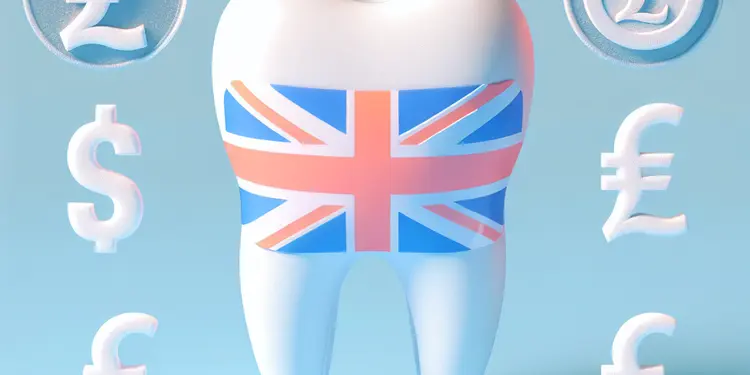
How does diet affect tooth decay?
Relevance: 74%
-

How is tooth decay diagnosed?
Relevance: 73%
-
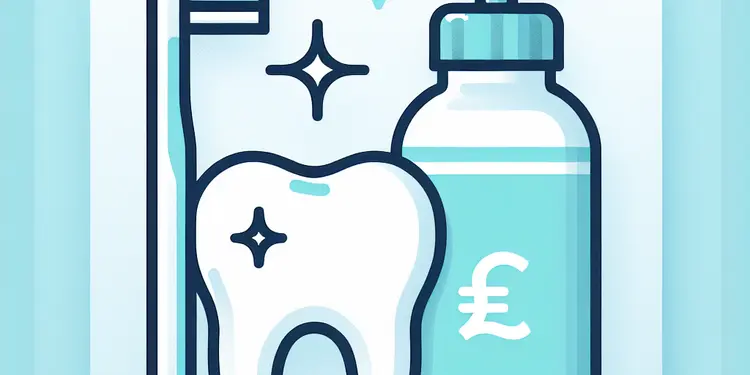
Can using mouthwash prevent tooth decay?
Relevance: 73%
-
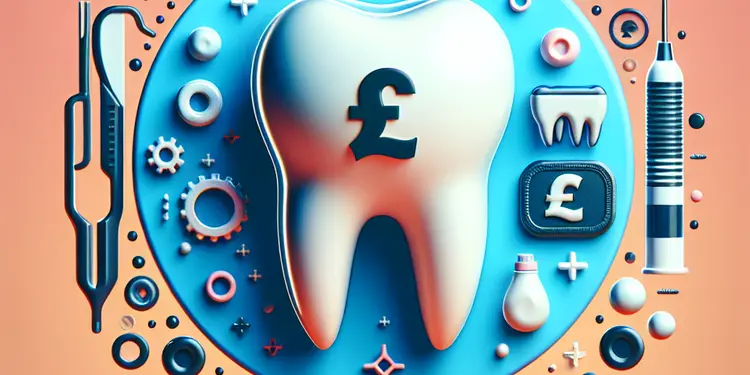
How can I prevent tooth decay?
Relevance: 71%
-
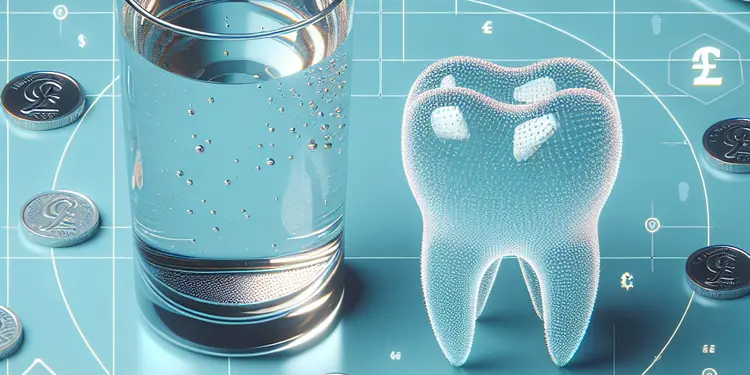
Can drinking water help prevent tooth decay?
Relevance: 69%
-
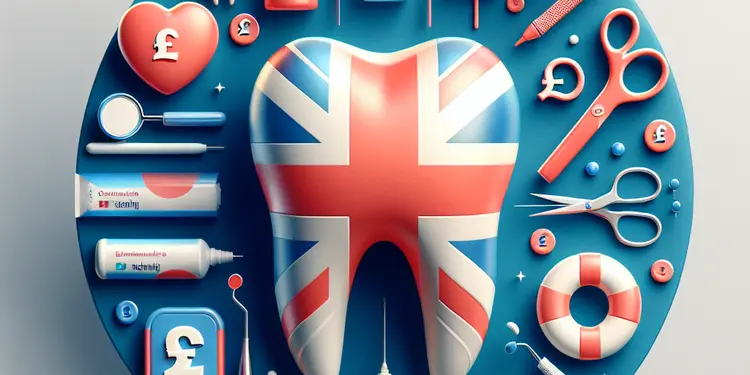
How does fluoride help prevent tooth decay?
Relevance: 64%
-
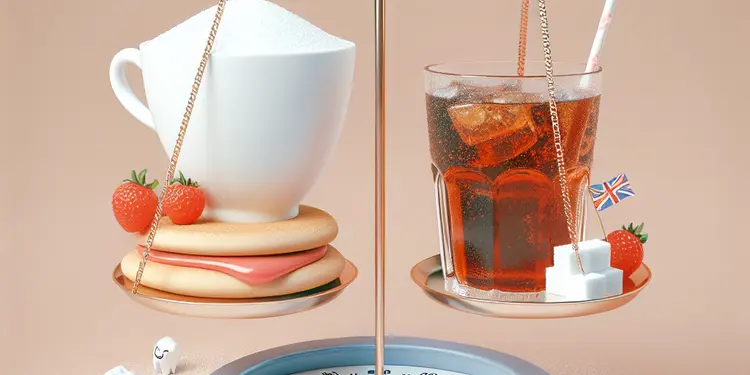
Are sugary drinks worse than sugary foods for causing tooth decay?
Relevance: 64%
-
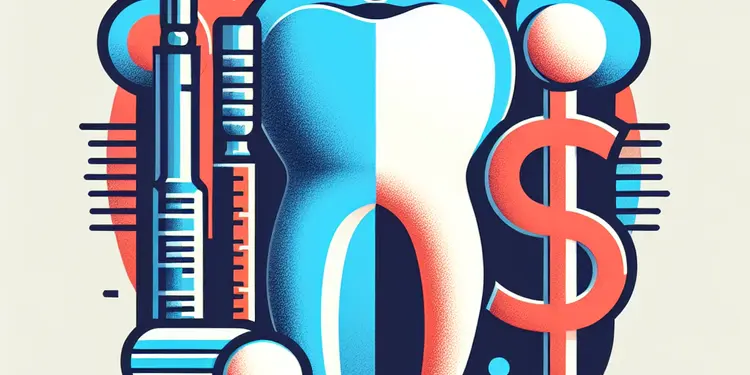
What is the role of dental sealants in preventing tooth decay?
Relevance: 59%
-
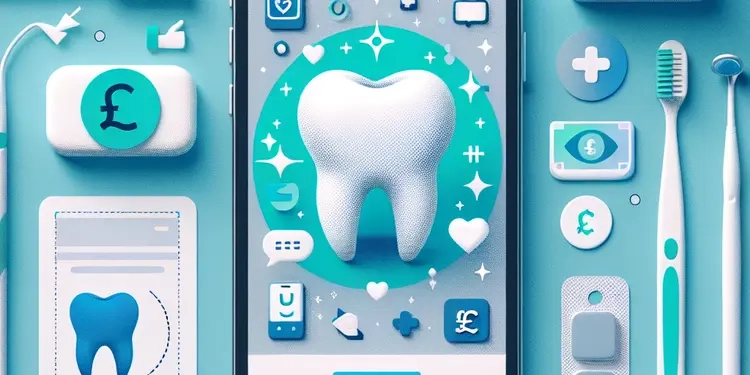
What is tooth decay?
Relevance: 58%
-
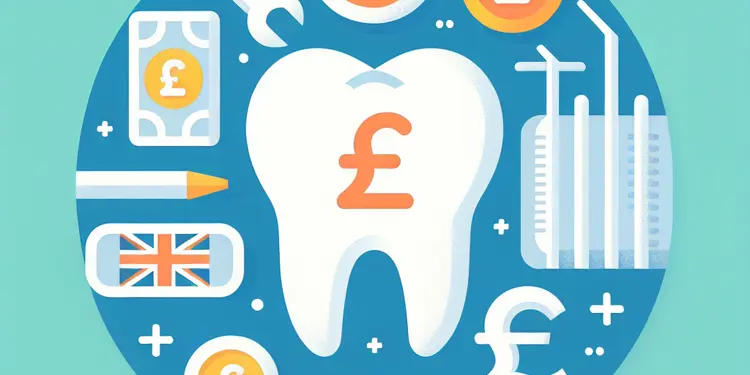
What treatments are available for tooth decay?
Relevance: 51%
-
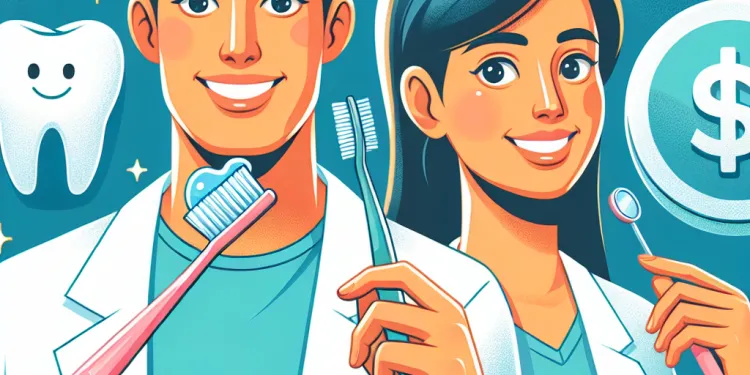
Dental Health: Tips for All Ages
Relevance: 43%
-
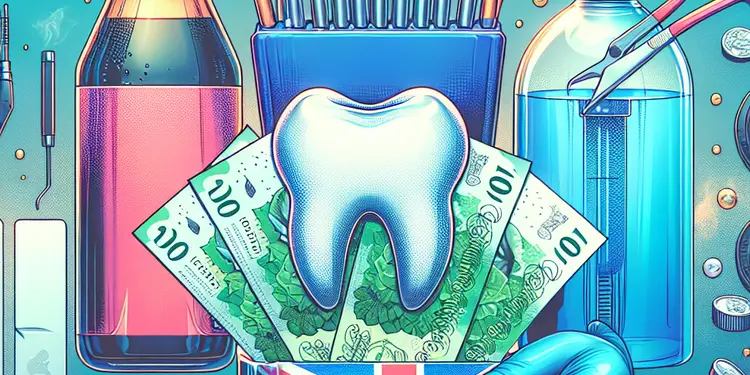
Can using nicotine pouches affect oral health?
Relevance: 42%
-

Can Mounjaro be taken orally?
Relevance: 30%
-
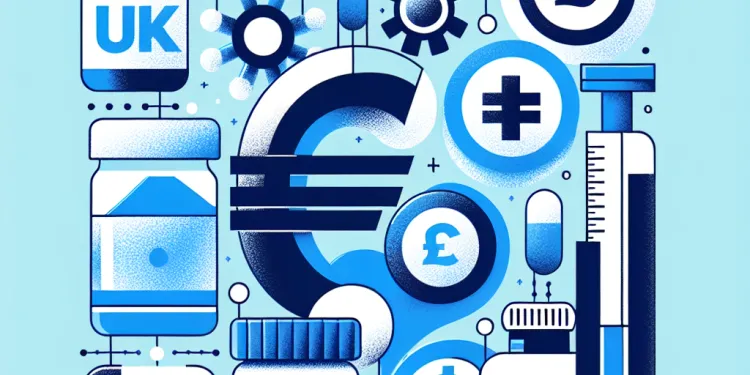
Are there any GLP-1 medications that are taken orally?
Relevance: 29%
-

How does junk food affect health?
Relevance: 28%
-
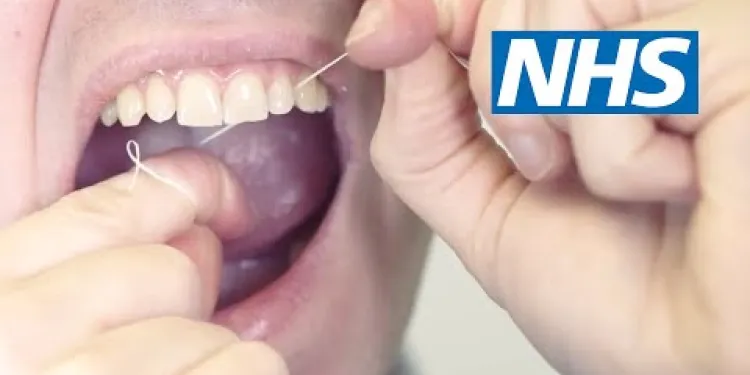
How to floss | NHS
Relevance: 24%
-

What treatments are covered by the NHS dental service?
Relevance: 24%
-
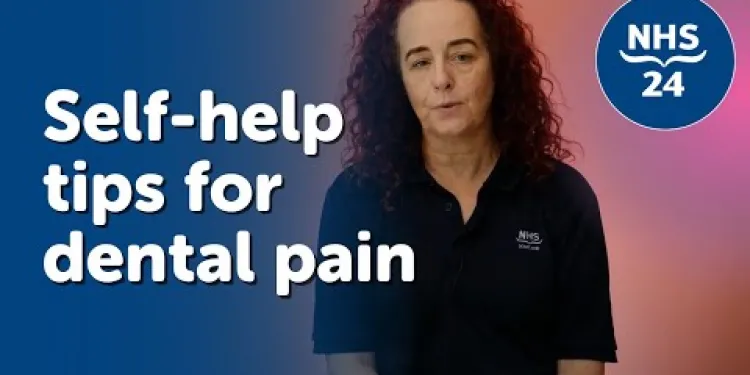
NHS 24 | Self-help tips for dental pain
Relevance: 23%
-
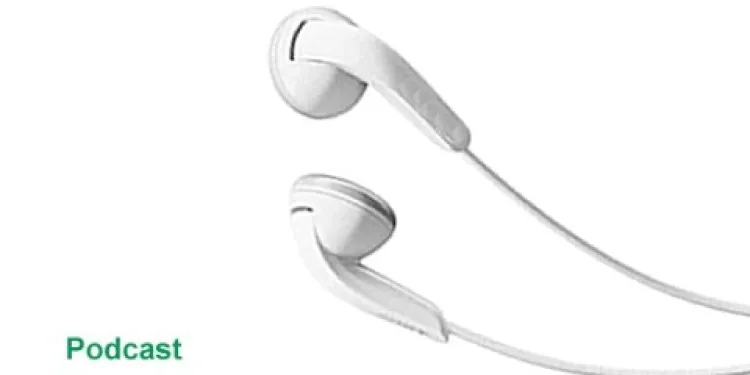
Coping with dry mouth
Relevance: 22%
-

Is orange juice acidic and can it affect teeth?
Relevance: 22%
-

How can I satisfy my sweet tooth without consuming sugar?
Relevance: 21%
-

Are Turkey Teeth only for aesthetic purposes?
Relevance: 21%
-
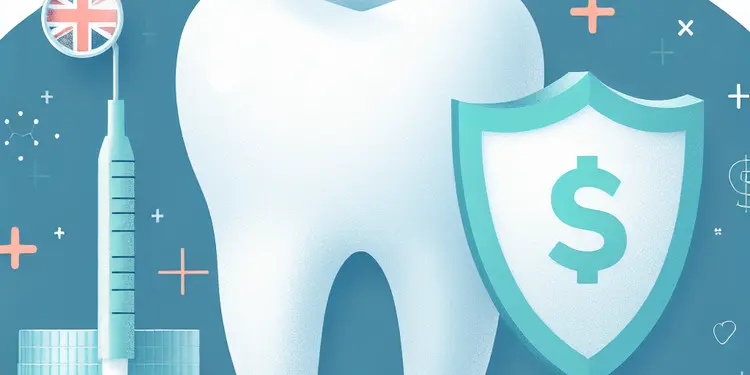
What treatments are covered by the NHS dental services?
Relevance: 19%
-

Why is it important to limit sugar intake?
Relevance: 19%
-
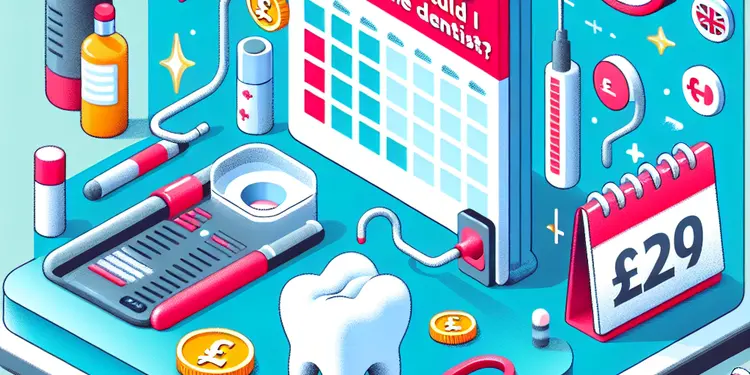
How often should I visit the dentist?
Relevance: 18%
-
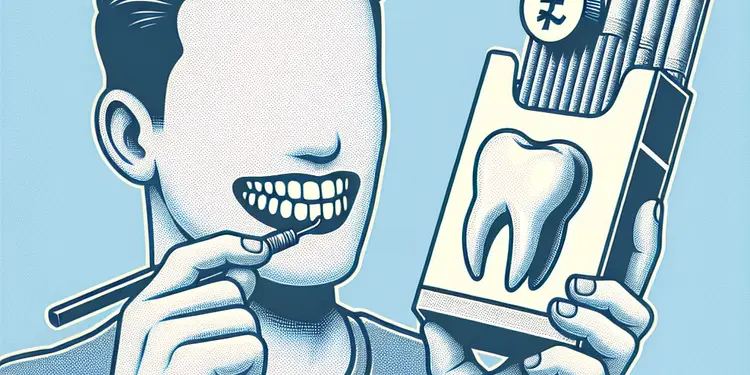
Do nicotine pouches stain teeth?
Relevance: 18%
-
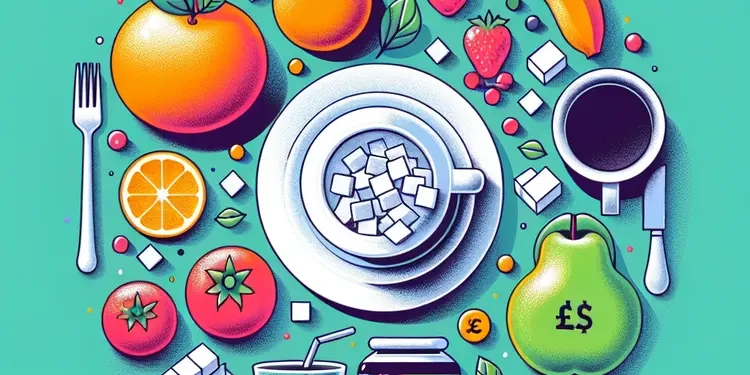
How much sugar should I eat every day?
Relevance: 18%
-
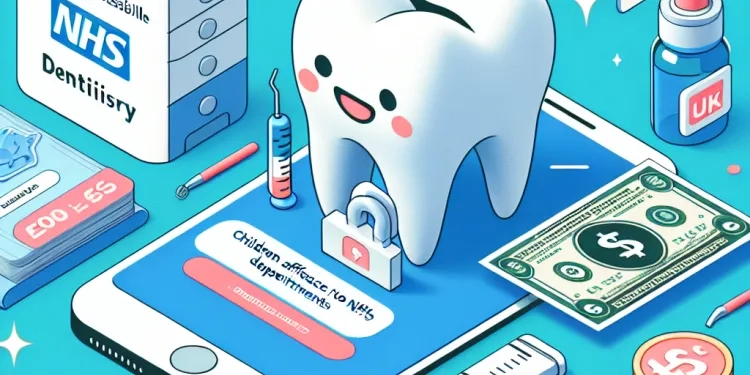
Can children get NHS dentist appointments?
Relevance: 17%
-
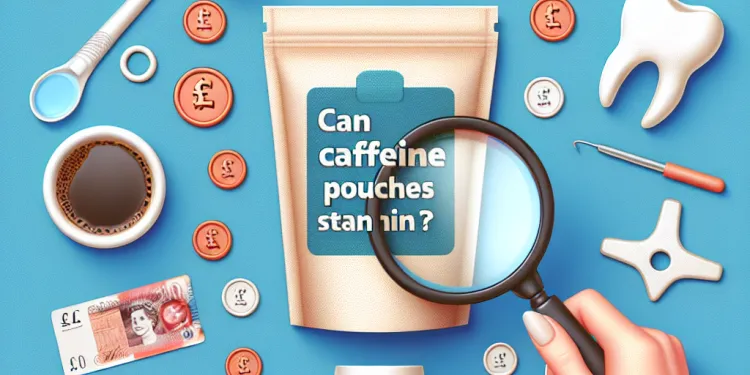
Can caffeine pouches stain teeth?
Relevance: 17%
-
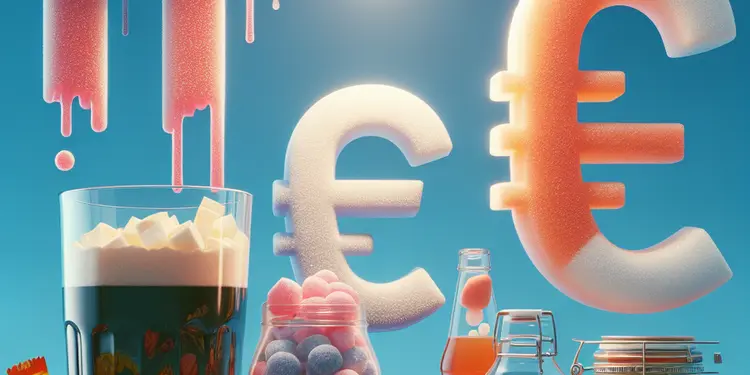
What are 'free sugars' and why should they be limited?
Relevance: 16%
-
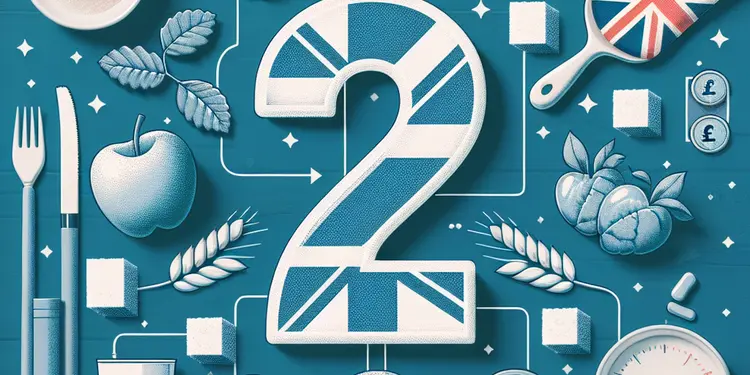
What is the role of sugar in a balanced diet?
Relevance: 16%
-
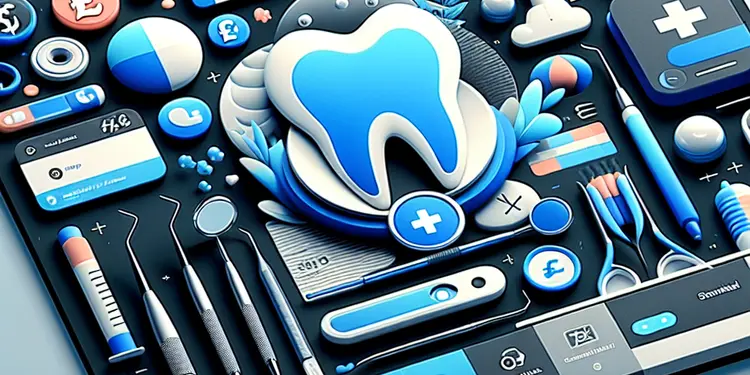
Can I get Turkey Teeth if I have existing dental issues?
Relevance: 16%
-
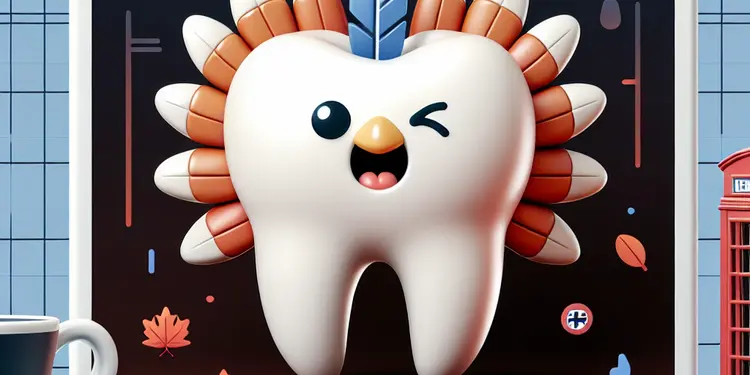
Are Turkey Teeth the same as veneers?
Relevance: 16%
-
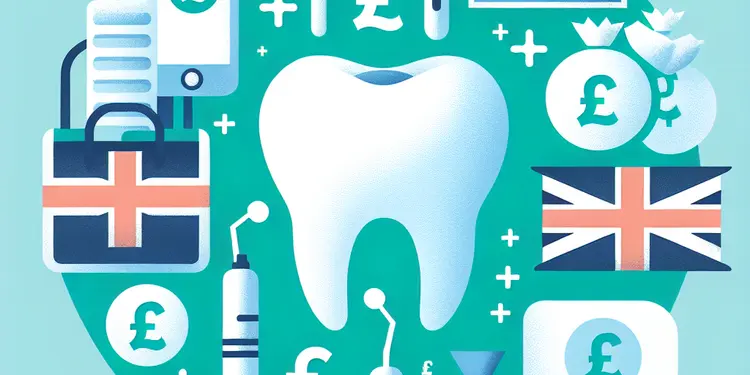
How often should I visit my NHS dentist?
Relevance: 16%
-
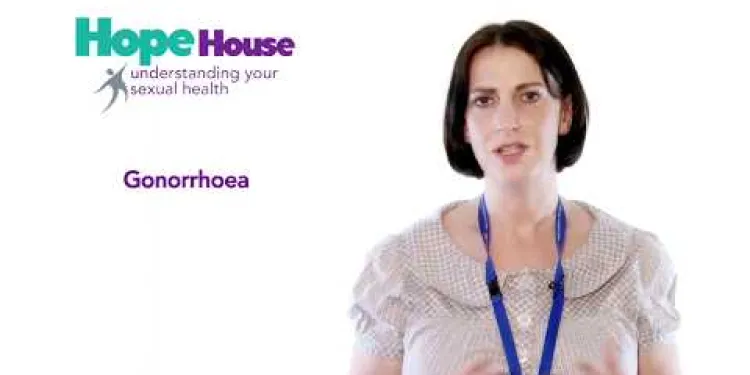
Understanding Your Sexual Health - Gonorrhoea
Relevance: 16%
-
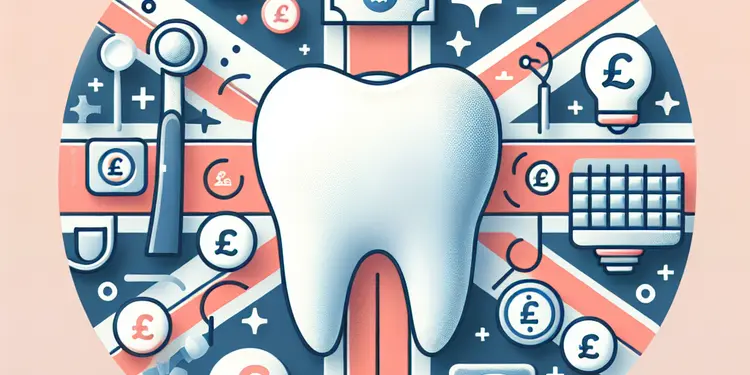
What is the difference between veneers and crowns?
Relevance: 15%
Oral Health Awareness - Tooth Decay
Understanding Tooth Decay
Tooth decay, also known as dental caries or cavities, is a common oral health issue that affects many individuals in the United Kingdom. It occurs when bacteria in the mouth produce acids that erode the tooth enamel. This process leads to the formation of holes or cavities in the teeth which can cause pain, infection, and even tooth loss if not treated promptly.
Causes of Tooth Decay
The primary cause of tooth decay is the accumulation of plaque—a sticky film of bacteria on the teeth. Factors that contribute to the development of tooth decay include poor oral hygiene, frequent consumption of sugary or acidic foods and drinks, and lack of fluoride. These elements combine to foster an environment where harmful bacteria thrive, producing acids that damage tooth enamel.
Preventing Tooth Decay
Preventing tooth decay involves maintaining good oral hygiene practices. This includes brushing teeth at least twice a day with fluoride toothpaste, flossing daily, and visiting the dentist regularly for check-ups and cleanings. Additionally, reducing the intake of sugary and acidic foods and drinks can help lower the risk of developing cavities. In the UK, the use of fluoride in drinking water and dental products also plays a significant role in preventing tooth decay.
Treatment for Tooth Decay
Early-stage tooth decay can often be treated with fluoride treatments to help repair enamel. More advanced decay may require fillings, crowns, or root canal therapy to restore tooth structure and function. In severe cases, extraction of the affected tooth may be necessary. Regular dental visits are essential for early detection and treatment of tooth decay to prevent further complications.
Conclusion
Tooth decay is a preventable condition that significantly impacts oral health in the UK. By understanding its causes, taking preventive measures, and seeking timely treatment, individuals can maintain healthy teeth and gums. Prioritising oral health awareness is crucial for avoiding the pain and complications associated with tooth decay.
Oral Health Awareness - Tooth Decay
What is Tooth Decay?
Tooth decay is when your teeth get damaged and develop holes. This can happen if you do not take care of your teeth. Bugs called bacteria live in your mouth and make acids that can make holes in your teeth. These holes are called cavities. Cavities can hurt and make your teeth fall out if not treated.
What Causes Tooth Decay?
Tooth decay is mainly caused by plaque. Plaque is a sticky layer of bacteria on your teeth. Things that cause tooth decay include not brushing your teeth, eating and drinking a lot of sugary or acidic things, and not having enough fluoride. These make more bacteria that harm your teeth.
How Can We Stop Tooth Decay?
To stop tooth decay, keep your teeth clean. Brush your teeth twice every day with fluoride toothpaste. Floss every day. Visit the dentist often. Eat less sugary and acidic foods. Drinking water and using dental products with fluoride helps protect your teeth.
How is Tooth Decay Treated?
If tooth decay is caught early, dentists use fluoride to fix your teeth. If it gets worse, you may need a filling or a crown. If it is really bad, you might need a root canal or the tooth taken out. Dentists help find and treat tooth decay early so you can avoid these problems.
Conclusion
Tooth decay can be prevented. By knowing what causes it, cleaning your teeth, and seeing a dentist, you can have healthy teeth. Looking after your teeth stops the pain and problems that come with tooth decay. Remember to always brush, floss, and visit your dentist!
Frequently Asked Questions
What is tooth decay?
Tooth decay is the damage that occurs when bacteria in your mouth produce acids that erode the enamel of your teeth.
What are the main causes of tooth decay?
The main causes of tooth decay include poor oral hygiene, consuming sugary or acidic foods and drinks, and not visiting the dentist regularly.
How can I prevent tooth decay?
You can prevent tooth decay by brushing your teeth twice a day with fluoride toothpaste, flossing daily, maintaining a balanced diet, reducing sugary and acidic foods, and visiting the dentist regularly.
What are the symptoms of tooth decay?
Common symptoms of tooth decay include toothache, sensitivity to hot and cold, visible holes or pits in your teeth, and black, white, or brown stains on the tooth surface.
How is tooth decay diagnosed?
Tooth decay is usually diagnosed by a dentist through a visual examination, dental x-rays, and sometimes using special instruments to probe the teeth.
Can tooth decay be reversed?
Early stages of tooth decay can sometimes be reversed with fluoride treatments and improved oral hygiene practices, but advanced decay requires professional dental treatment.
What treatments are available for tooth decay?
Treatments for tooth decay include fluoride treatments, dental fillings, crowns, root canals, and in severe cases, tooth extractions.
Is tooth decay common in children?
Yes, tooth decay is common in children, especially those who consume sugary foods and drinks and have poor oral hygiene habits.
How does diet affect tooth decay?
Diets high in sugar and acidic foods and drinks can increase the risk of tooth decay. These substances feed bacteria in the mouth that produce acids, which erode tooth enamel.
Can drinking water help prevent tooth decay?
Drinking water, especially fluoridated water, helps rinse away food particles and bacteria, and can help prevent tooth decay.
How often should I visit the dentist?
You should visit the dentist at least twice a year for regular check-ups and cleanings to prevent and detect any early signs of tooth decay.
Can using mouthwash prevent tooth decay?
Using a fluoride mouthwash can help prevent tooth decay by reducing the amount of bacteria in your mouth and strengthening your enamel.
How does fluoride help prevent tooth decay?
Fluoride helps prevent tooth decay by making the tooth enamel more resistant to acid attack and can even help reverse early decay.
What is the role of dental sealants in preventing tooth decay?
Dental sealants are a protective coating applied to the chewing surfaces of the back teeth. They act as a barrier against plaque and acids, effectively preventing tooth decay.
Are sugary drinks worse than sugary foods for causing tooth decay?
Both sugary drinks and foods can contribute to tooth decay, but sugary drinks can be particularly harmful as they tend to wash over and cling to the teeth.
What is a cavity?
A cavity is a hole in your tooth. It starts when teeth are not cleaned well. Germs make the holes bigger.
Brush your teeth every day to help stop cavities.
You can ask a grown-up to help you with brushing.
Tooth decay happens when germs in your mouth make acids that hurt the hard, outer part of your teeth.
What causes tooth decay?
Tooth decay is when your teeth get holes in them. Here is what can make this happen: - **Eating Sugary Foods and Drinks:** Things like candy, soda, and cake have lots of sugar. Sugar can hurt teeth. Try to eat less of these. - **Not Brushing and Flossing:** Brush your teeth two times a day. Floss once a day. This helps keep your teeth clean and healthy. - **Skipping Dentist Visits:** Go to the dentist every six months. The dentist checks your teeth and helps keep them strong. Here are a few tools to help you: - Use a **toothbrush** with soft bristles. - Use **fluoride toothpaste**. This helps protect your teeth. - Try a **timer** to make sure you brush your teeth for 2 minutes. Keeping your teeth clean and healthy is very important!Tooth decay happens because of these things:
- Not brushing your teeth well.
- Eating or drinking too much sugar or acid.
- Not seeing the dentist often.
Here are some tips to help:
- Brush your teeth every day.
- Eat and drink less sugar.
- Visit the dentist to check your teeth.
How can I stop my teeth from getting holes?
Here are some easy ways to keep your teeth healthy:
- Brush your teeth twice every day.
- Use toothpaste with fluoride to keep teeth strong.
- Try not to eat or drink too much sugar.
- Visit the dentist regularly to check your teeth.
- Drink lots of water to keep your mouth clean.
These steps can help you have a bright and healthy smile!
You can stop your teeth from getting holes and going bad by doing these things:
Brush your teeth two times every day with toothpaste that has something called fluoride in it. This helps make your teeth strong.
Use dental floss every day to clean between your teeth.
Eat healthy foods. Try to eat a mix of different foods to keep your teeth strong.
Eat less sugary and sour foods. These can hurt your teeth.
Go to the dentist for check-ups often. They help keep your teeth healthy.
If you need help, you can ask someone you trust to remind you or help you with brushing and flossing your teeth.
What happens when a tooth is going bad?
When you have a bad tooth, you might feel a toothache. Your teeth might hurt when you eat something hot or cold. Look for little holes in your teeth. You might see black, white, or brown spots on your teeth.
How do we know if someone has tooth decay?
Here's how to find out if your teeth are okay:
- Visit the dentist. They look at your teeth carefully.
- The dentist might use special tools to check your teeth.
- Sometimes, they take a picture of your teeth using an X-ray machine.
Here are some things you can do to help:
- Tell the dentist if your teeth hurt or feel funny.
- Brush your teeth twice every day to keep them clean.
- Ask an adult to help you brush your teeth if you need it.
Using pictures or videos about brushing teeth can also help you understand better.
A dentist looks for tooth decay. They do this by looking at your teeth. They might take pictures of your teeth with x-rays. Sometimes, they use special tools to check your teeth.
Can bad teeth get better?
If your teeth are starting to get cavities, you might be able to make them better with special toothpaste and by brushing your teeth more. But if the cavities are really bad, a dentist needs to fix them.
What can help fix tooth decay?
If you have tooth decay, don't worry. There are things to help fix it:
- Visit a dentist. They can clean the teeth.
- The dentist might fill the hole in the tooth.
- Brush your teeth every day. This keeps them healthy.
- Try not to eat too many sweets or sugary drinks.
- Use toothpaste with fluoride. It helps protect teeth.
If reading is hard, you can:
- Ask someone to read with you.
- Use apps or tools that read text out loud.
There are ways to fix bad teeth. These include using fluoride, getting fillings, crowns, root canals, and sometimes taking out the tooth if it is really bad.
Do a lot of kids get tooth decay?
Yes, children often get tooth decay. This happens if they eat or drink a lot of sugary things and do not brush their teeth well.
Helpful tools: Use a fun timer when brushing teeth. Try a toothpaste with a favorite flavor. Use a colorful toothbrush. Ask a grown-up for help to clean your teeth.
How does food affect tooth decay?
What you eat can change your teeth. Eating sweets or sugary foods can cause holes in teeth. These holes are called cavities. To have strong teeth:
- Eat fruits and vegetables.
- Drink water instead of sugary drinks.
- Brush your teeth twice a day.
Ask an adult if you need help or have questions about food and teeth.
Eating lots of sugar and acidic foods and drinks can make your teeth rot. This happens because these foods help tiny germs in your mouth. The germs make acids that eat away at the hard coating on your teeth, called enamel.
Does drinking water stop teeth from going bad?
Drinking water is good for your teeth.
It can help stop your teeth from getting holes.
Water washes away bits of food and sugar.
It also helps make your mouth less dry.
Tools to help you:
- Use a timer to remind you to drink water often.
- Keep a water bottle with you all day.
Drinking water is good for your teeth. Water with fluoride can clean away pieces of food and germs. This helps keep your teeth from getting holes or being hurt.
How often should I go to the dentist?
You should go to the dentist twice a year. That's once every six months.
Visiting the dentist helps keep your teeth healthy and strong.
If you need help, you can:
- Ask a family member or friend to remind you.
- Use a calendar or phone to set reminders.
Go to the dentist two times a year. The dentist will check your teeth and clean them. This helps stop any problems with your teeth before they start.
Can mouthwash stop teeth from getting holes?
Mouthwash is a liquid you rinse your mouth with. It helps keep your mouth clean.
Brushing your teeth is important. Mouthwash can help too, but it cannot do the job alone.
To stop your teeth from getting holes, do these things:
- Brush your teeth 2 times a day.
- Floss your teeth every day.
- Eat healthy foods, like fruits and veggies.
- Visit the dentist regularly.
- Use mouthwash as part of your routine.
These steps help you keep your teeth strong and healthy.
Using a fluoride mouthwash can help keep your teeth healthy. It stops your teeth from getting holes by getting rid of germs and making your teeth strong.
How does fluoride help stop teeth from getting holes?
Fluoride is a natural mineral that helps keep teeth strong. It stops holes from forming in your teeth.
Fluoride does two main things:
- It makes tooth enamel (the hard outer layer of teeth) stronger.
- It helps fix tiny holes before they become big and hurt.
Here are some ways to use fluoride:
- Brush with fluoride toothpaste.
- Drink water with fluoride in it.
If you have trouble reading, you can:
- Ask someone to read with you.
- Use a tool that reads text aloud.
Fluoride is good for your teeth. It helps stop your teeth from getting holes. Fluoride makes the outside of your teeth strong. It also helps fix teeth if they start to get a little damage.
How do dental sealants help stop tooth decay?
Dental sealants are a special covering that goes on your teeth. They help keep your teeth healthy.
Here is how they work:
- They cover the top part of your teeth, like a shield.
- This stops germs and food from getting stuck on your teeth.
- When germs and food can't stick, your teeth stay strong and don't get holes.
Here are some ways to learn more:
- Ask your dentist to show you how sealants work.
- Watch a short video about dental sealants.
- Use pictures and simple words to learn how to keep your teeth healthy.
Dental sealants are a special cover put on the chewing parts of your back teeth. They help keep away food bits and stuff that can hurt your teeth, stopping them from getting holes.
Do sugary drinks harm our teeth more than sugary foods?
Sugary drinks like soda and fruit juice can be bad for your teeth. They have a lot of sugar. This sugar can hurt your teeth. When you drink these, the sugar can stay on your teeth and cause problems.
Sugary foods like candy and cakes also have a lot of sugar. They can also be bad for your teeth, but they might not cover your teeth as much as drinks do.
To keep your teeth healthy, you can:
- Drink water instead of sugary drinks.
- Brush your teeth twice every day.
- Visit the dentist regularly.
Sugary drinks and sweet foods can both hurt your teeth. But sugary drinks can be worse. This is because they cover your teeth and stick to them.
Useful Links
This website offers general information and is not a substitute for professional advice.
Always seek guidance from qualified professionals.
If you have any medical concerns or need urgent help, contact a healthcare professional or emergency services immediately.
Some of this content was generated with AI assistance. We’ve done our best to keep it accurate, helpful, and human-friendly.
- Ergsy carfully checks the information in the videos we provide here.
- Videos shown by Youtube after a video has completed, have NOT been reviewed by ERGSY.
- To view, click the arrow in centre of video.
- Most of the videos you find here will have subtitles and/or closed captions available.
- You may need to turn these on, and choose your preferred language.
- Go to the video you'd like to watch.
- If closed captions (CC) are available, settings will be visible on the bottom right of the video player.
- To turn on Captions, click settings .
- To turn off Captions, click settings again.
More Items From Ergsy search
-

Oral Health Awareness - Tooth Decay
Relevance: 100%
-

Can tooth decay be reversed?
Relevance: 76%
-

Is tooth decay common in children?
Relevance: 76%
-

What are the symptoms of tooth decay?
Relevance: 76%
-

How does diet affect tooth decay?
Relevance: 74%
-

How is tooth decay diagnosed?
Relevance: 73%
-

Can using mouthwash prevent tooth decay?
Relevance: 73%
-

How can I prevent tooth decay?
Relevance: 71%
-

Can drinking water help prevent tooth decay?
Relevance: 69%
-

How does fluoride help prevent tooth decay?
Relevance: 64%
-

Are sugary drinks worse than sugary foods for causing tooth decay?
Relevance: 64%
-

What is the role of dental sealants in preventing tooth decay?
Relevance: 59%
-

What is tooth decay?
Relevance: 58%
-

What treatments are available for tooth decay?
Relevance: 51%
-

Dental Health: Tips for All Ages
Relevance: 43%
-

Can using nicotine pouches affect oral health?
Relevance: 42%
-

Can Mounjaro be taken orally?
Relevance: 30%
-

Are there any GLP-1 medications that are taken orally?
Relevance: 29%
-

How does junk food affect health?
Relevance: 28%
-

How to floss | NHS
Relevance: 24%
-

What treatments are covered by the NHS dental service?
Relevance: 24%
-

NHS 24 | Self-help tips for dental pain
Relevance: 23%
-

Coping with dry mouth
Relevance: 22%
-

Is orange juice acidic and can it affect teeth?
Relevance: 22%
-

How can I satisfy my sweet tooth without consuming sugar?
Relevance: 21%
-

Are Turkey Teeth only for aesthetic purposes?
Relevance: 21%
-

What treatments are covered by the NHS dental services?
Relevance: 19%
-

Why is it important to limit sugar intake?
Relevance: 19%
-

How often should I visit the dentist?
Relevance: 18%
-

Do nicotine pouches stain teeth?
Relevance: 18%
-

How much sugar should I eat every day?
Relevance: 18%
-

Can children get NHS dentist appointments?
Relevance: 17%
-

Can caffeine pouches stain teeth?
Relevance: 17%
-

What are 'free sugars' and why should they be limited?
Relevance: 16%
-

What is the role of sugar in a balanced diet?
Relevance: 16%
-

Can I get Turkey Teeth if I have existing dental issues?
Relevance: 16%
-

Are Turkey Teeth the same as veneers?
Relevance: 16%
-

How often should I visit my NHS dentist?
Relevance: 16%
-

Understanding Your Sexual Health - Gonorrhoea
Relevance: 16%
-

What is the difference between veneers and crowns?
Relevance: 15%


